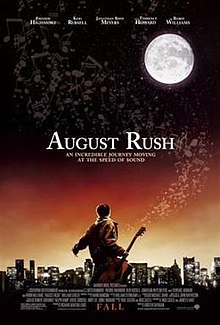 |
| One of my favorite adaptations of Dickens' Oliver Twist |
Judging solely from my own observations, the BBC and/or Masterpiece Theater adapt Dickens' work more than any other single writer. When they've gone through all the favorites, they queue up again at the beginning, or occasionally wander off the beaten path to stories like Bleak House, Little Dorrit (yay Matthew Macfadyen) and The Old Curiosity Shop. Screenwriters and producers fall over all themselves attempting to compensate for Dickens' literary lapses, untold master's theses have been earned analyzing them, but the voice of the storyteller remains.
 |
| Who is not dying to see these two belt it out in Les Mis? |
I have to apologize to those who believe it the best book of the 19th century. It wasn't. It may very well be the best story of the era, my heart pitter-pats at the thought of Hugh Jackman singing his way through Jean val Jean, but the book . . . well . . . stunk. Victor Hugo needed a ruthless editor.
What else can I add to my list? Moby-Dick by Herman Melville is actually two books: a rip-roaring action/thriller and morality tale about hatred and obsession, and a naturalist's travelogue. Unlike Hugo's fifty-page treatise on the virtues of human excrement and the criminally wasteful Parisian sewer system, I found Melville's studies on not only whaling but the lives and habits of whales very interesting, if misplaced. But, again, never underestimate the value of a red pencil.
The inimical Jane Austen, I believe, was a great writer. My favorite sesquipedalian, her characters spoke with pinpoint accuracy, using expressions such as insuperable, disapprobation, importune and disinclination. She used language to illustrate the subtle nuances of character, differences apparent not only between classes and sexes but between family members and education levels. Her popularity remains as vibrant today as the world she created for the reader—an escape to which can prove all too tempting (a la Lost in Austen).
However, her storytelling skills could have been better. Not much happens. Nothing surprises. People tend to sit around and talk a lot. But then (argue her outraged proponents), that's what women of her time did and precious little else. That's the whole point!
 |
| Charlotte Bronte: storyteller, writer or both? |
I fear I fall into the "writer only" category. I need to quit impressing myself with my technical skills, intricately woven plot lines and character developments, and get on with telling the story. I first need the structure. I can worry about carpets and paint once the walls are up and the roof is on.
Who is your favorite storyteller? Why? What is their most memorable work? Leave a comment below and join the conversation.
—A Chaotic Mind
4 comments:
This is a great post on the difference between good writing and good storytelling. Hopefully we all aspire to merge the two!
Penny, my friend, you had me going there. I'm a Dickens/Twain nut! I love their work, and that of 'lady' Jane. When you added Charlotte in, I was smiling. Jane Eyre is one of my all-time favorites.
Am I a writer or a story teller? I hope I'm both.
Nice post! :)
Thanks, ladies. I think it's a worthy goal for all of us. Charlotte, Jane Eyre has been my favorite since sixth grade, I think. Charlotte Bronte opened my eyes to the classics.
I hope I'm a story teller. I certainly do not obsess over the correct placement of commas. LOL
Post a Comment